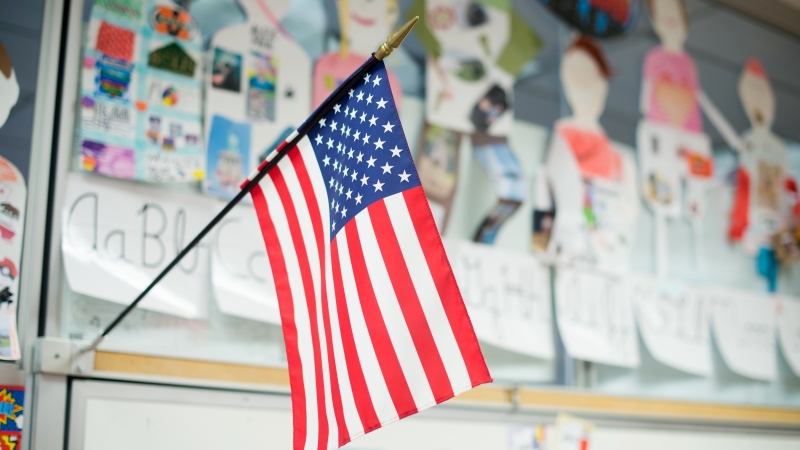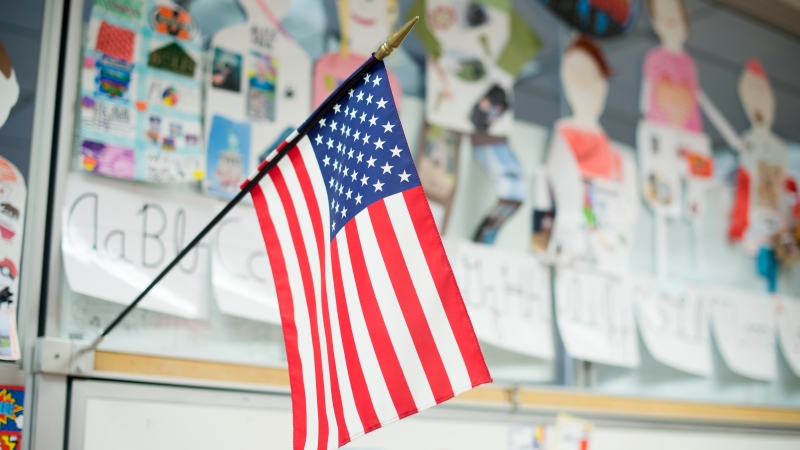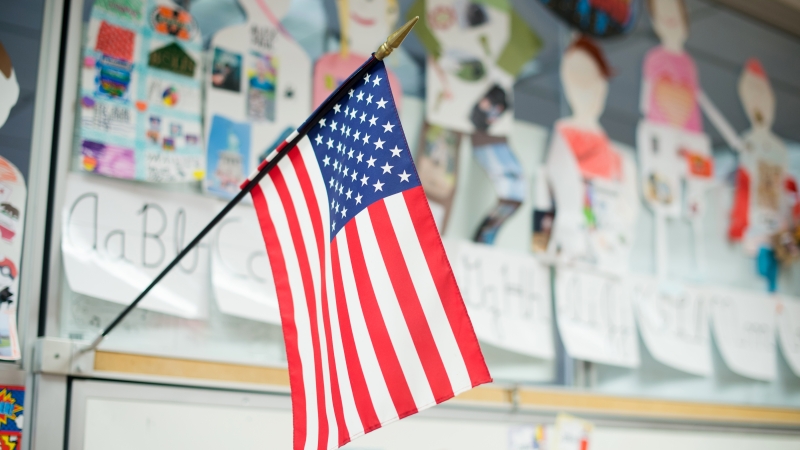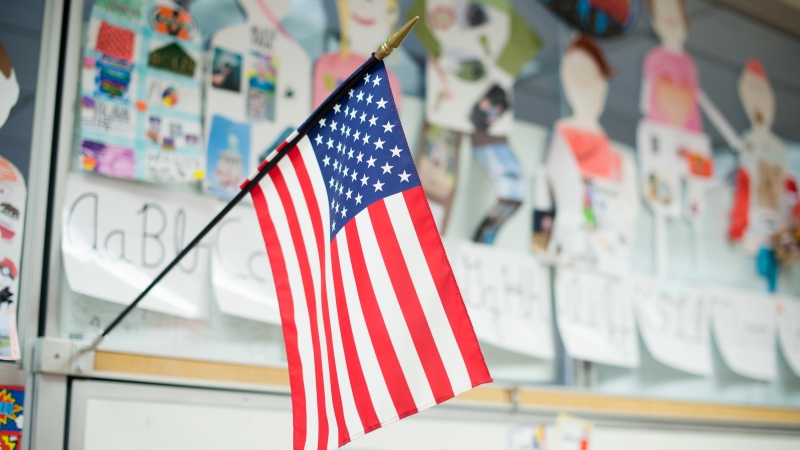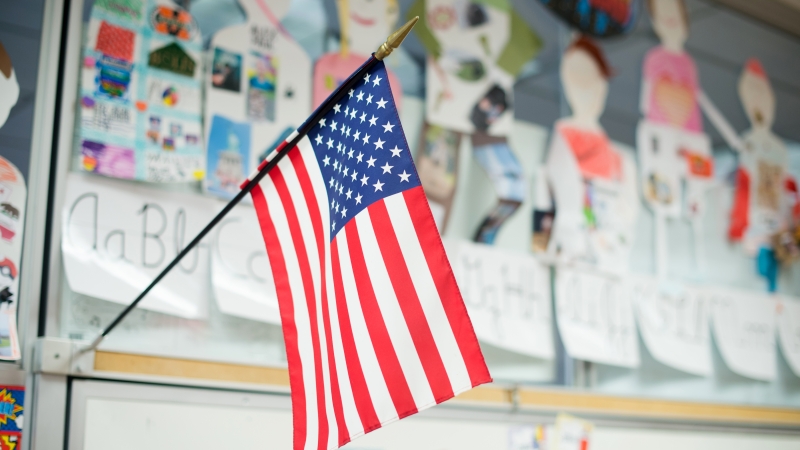
General Assembly Weekly Update
January 24, 2020
2020 General Assembly Update
Key Education-Related Subjects
Week ending Friday, January 24, 2020
Fairfax County Public Schools, Office of Government Relations
Additional information regarding the education-related legislation described below, as well as for all other bills related to education can be found in the thirteen subject categories located on the web pages of the FCPS Office of Government Relations at https://www.fcps.edu/about-fcps/departments-and-offices/government-relations/virginia-general-assembly. Bills in these categories are linked to the Virginia Division of Legislative Services web pages, which provide up-to-date summary, fiscal impact and bill status information.
K-12 Legislation
Distributed renewable energy; promotes the establishment thereof HB 572 (Keam), HB 912 (Simon), HB 1184 (Lopez), and SB 710 (McClellan) would promote the establishment of distributed renewable solar and other renewable energy. These measures (i) would remove the one percent cap on the total amount of renewable energy that can be net metered in a utility's service territory, (ii) authorize third-party power purchase agreements for all customer classes throughout the Commonwealth, (iii) allow local governments and certain other public bodies to install solar or wind facilities of up to five megawatts on government-owned property and use the electricity for government-owned buildings, (iv) allow all net metering customers to attribute output from a single solar array to multiple meters, (v) allow the owner of a multi-family residential building or the common areas of a condominium to install a renewable energy generation facility and sell the electricity to tenants or condominium unit owners, (vi) remove the restriction on customers installing a net-metered generation facility larger than that required to meet their previous 12 months' demand, (vii) raise the cap for net-metered nonresidential generation facilities from one megawatt to three megawatts, and (viii) remove the ability of utilities to assess standby charges. The measure would also amend the Commonwealth Energy Policy to include provisions supporting distributed generation of renewable energy.
High School Graduation Requirements; Advanced Diploma; Standard Units of Credit; Certain Substitutions SB 323 (Barker) would require the Board of Education, in establishing high school graduation requirements, to permit any student who is pursuing an advanced studies diploma to substitute two standard units of credit in computer science for two standard units of credit in a foreign language.
Public institutions of higher education; entrance requirements; computer coding. HB 1309 (Carroll Foy) would require each public institution of higher education to count credit received for successful completion of a high school computer coding course toward the mathematics or science entrance requirements of the institution.
Students in Grades Six, Seven, and Eight; Computer Science or Introduction to Technology Course Required HB 694 (Simonds) would require each student in grades six, seven, and eight, starting in the 2025-2026 school year, to complete at least one semester-long or year-long computer science elective course or introduction to technology course that is aligned with the appropriate Standards of Learning and may include the following content: examining systems and resources of technology, solving problems in technology, introducing microcontrollers, exploring the designed world, computing systems, networks and the Internet, cybersecurity, data and analysis, algorithms and programming, and the impacts of computing. The bill would provide that no such student shall be required to complete an end-of-course assessment for any such course. The bill would require the Board of Education to amend or create Standards of Learning as necessary to implement the foregoing provisions and requires the Department of Education to confer with certain organizations to ensure that the proper training is available to the teachers of such courses.
Uniform Statewide Building Code; Installation of key boxes of high-risk structures HB 1732 (Miyares) would direct the Board of Housing and Community Development to require that all high-risk structures, including public elementary and secondary schools, have key boxes installed in strategic locations on the outside of such structures. The bill requires that such key box contain keys or other credentials or access cards that may be necessary for law-enforcement officials to gain access to such structure or an area within such structure during an emergency.
Passing Stopped School bus; Vendor, Administrative Fee. HB 1427 Krizek would authorize a private vendor operating a video monitoring system for a school division for the purpose of recording those illegally passing stopped school buses to impose and collect an administrative fee to recover the cost of collecting the civil penalty to be paid by the operator of the vehicle. The bill contains technical amendments.
State Accountability and Reporting; Student Subgroup Size HB 399 (Keam) would require, for the purposes of ensuring state accountability pursuant to relevant federal law and publicly reporting the assessment scores of student subgroups, the minimum student subgroup size to be 10.
School boards; Staffing ratios; Librarians. HB 1599 (Roem) would require school boards to employ librarians in accordance with the following ratios: in elementary schools, one part-time to 299 students, one full-time at 300 students, and two full-time at 700 students; in middle schools, one-half time to 299 students, one full-time at 300 students, two full-time at 800 students, and three full-time at 1,700 students; and in high schools, one half-time to 299 students, one full-time at 300 students, two full-time at 900 students, and three full-time at 1,800 students. Under current law, school boards are required to employ librarians in accordance with the following ratios: in elementary schools, one part-time to 299 students and one full-time at 300 students; in middle schools, one-half time to 299 students, one full-time at 300 students, and two full-time at 1,000 students; and in high schools, one half-time to 299 students, one full-time at 300 students, and two full-time at 1,000 students.
School library clerical personnel; ratios of positions to students. HB 1415 (Roem) would establish the following ratios for school library clerical personnel positions: in elementary schools, one full-time at 300 students and two full-time at 700 students; in middle schools, one full-time at 300 students, two full-time at 800 students, and three full-time at 1,700 students; and in high schools, one full-time, two full-time at 900 students, and three full-time at 1,800 students.
Update - Actions on Bills Previously Reported
The following details actions that have been taken on some of the bills previously reported in Weekly Updates.
Note that bills with solely local fiscal or administrative impacts are not being referred to money committees after their consideration in policy committees as often as they might have been in previous Sessions, and they are finding more success than they have historically.
FCSB Priorities or Initiatives
- Diploma Requirements - Dual Enrollment HB 516 (Bulova) – Substitute passed the House HB 112 (McNamara) – Incorporated into HB 516 and SB 112 (Suetterlein – Passed the Senate
Bills Related to School Resource Officers
- School boards and local law-enforcement agencies; memorandums of understanding; frequency of review and public input. SB 221 (Locke) –Reported from Senate Education and Health, headed to Senate floor
Bills Related to Contracting, Licensure, and Required Training
- Probationary Term of Service; Performance SB 98 (Locke) – Reported from Education & Health and will now go to the Senate floor
- Dismissal of Teachers; Grounds; Incompetency SB 167 (Favola) – Amended (Definition of Incompetency removed) and reported from Senate Education & Health and will now go to Senate floor
- Teacher grievance procedures; hearing; three-member fact-finding panel. SB 377 (Bell) – Reported from Education & Health and will now go to Senate floor
- Mental Health Training HB 74 (Kory) – Amended and reported by subcommittee (redefined as mental health awareness training, can be online, existing local programs fulfill the requirement), going to full committee HB 716 (Reid) – Incorporated into HB 74 (Kory)
- Seizure Treatment and Training SB 420 (DeSteph) – Amended and reported by subcommittee, will go to the full Senate Education & Health Committee
- Sudden cardiac arrest prevention in student-athletes SB 463 (Reeves) – Amended and reported by subcommittee, going to full Senate Ed and Health committee (removed training and penalty provisions)
Bills Related to Student Discipline
- Disorderly Conduct at School Sponsored Activities HB 8 (Bourne) – Incorporated into HB 256 (Mullin), HB 256 (Mullin) Amended and reported by subcommittee, going to full House Courts (disorderly conduct charge not applicable to students on school grounds)
Bills Related to School Facilities
- Uniform Minimum Standards for Modern Public School Buildings SB 5 (Stanley) – Reported from Education & Health and rereferred to the Committee on Finance & Appropriations
- Legionella bacteria testing; review; report. SB 410 (Hashmi) – Amended and reported by Public Education Subcommittee, going to full committee (requests Department of Health to establish standards)
- Mold testing; parental notification. SB 845 (Ebbin) – Amended and Reported from Public Education Subcommittee, going to full committee (requires plans for testing and remediation, specifies specific levels)
- Lead testing; report; parental notification. HB 797 (Askew) – Waiting to be heard by Pre-K-12 Sub-Committee, SB 392 (McPike) – Amended and Reported from Public Education subcommittee, going to full committee (sets levels which would trigger notice to parents)
- Potable water; water bottle filling stations SB 299 (Stanley) – Stricken at the request of the patron HB 1085 (Hayes) – Laid on the Table
- Menstrual supplies; certain school buildings. SB 232 (Boysko) – Amended and passed the full Senate
Proposed K-12 Related Budget Amendments
Amendments to the budget bill can propose to add, modify, endorse or delete items in the Governor's Introduced budget and often highlight priorities not otherwise addressed by the Governor’s proposal. Proposed amendments are considered by the House Appropriations and Senate Appropriations and Finance Committees and may be included in their chamber’s final package of budget amendments to the Governor’s Introduced budget.
Before the General Assembly adjourns, a conference committee of members from both chambers will convene to resolve any differences between the amendments passed by the two houses and finalize the biennial budget. Each chamber should complete their work on their amendments to the Governor’s Introduced budget no later than February 20th.
Of note, based on budget amendment proposals, the cost to fully eliminate the support position funding cap, a Fairfax County School Board priority, is now estimated at over $400M annually.
|
Issue Area of Proposed Amendment |
House |
Senate |
|
Cost of Competing Adjustment |
Item 145#3h (Delaney) and Item 145 26h (Helmer) would return the adjustment factor to the historic rate of 24.61% from the current rate of 10.6% for school divisions in Planning District 8. For the nine adjacent school divisions, this action would return the adjustment factor to the historic rate of 6.15% from the current rate of 2.65%. First Year FY 2021: $24,808,233 Second Year FY 2022: $25,886,016
|
Item 145#22s (Stuart) and Item 145#26s (Bell) would restore the amount of state SOQ funding to select school divisions (Planning District 8) and certain adjacent school divisions) at FY 2012 funding levels resulting from the previous elimination of state funding for the cost-of-competing adjustment for support positions. First Year FY 2021: $24,808,233 Second Year FY 2022: $25,886,016 |
|
Eliminate Support Cap |
Item 145#16h (Leftwich) and Item 145 #29h (Aird) would eliminate the support cap methodology that was first implemented in 2009 to limit the number of support positions funded by the Standards of Quality. This proposal was adopted by the Board of Education as part of its biennial Standards of Quality review. First Year FY 2021: $406,435,058 Second Year FY 2022: $407,088,908
|
Item 145#15s (McClellan) would remove the support position cap used in Basic Aid funding. First Year FY 2021: $406,435,058 Second Year FY 2022: $407,088,908 |
|
Remove Certain Positions from Support Cap
|
Item 145#8h (Heretick) and Item 145 #28h (Hayes) would remove school psychologist, school social worker, school nurses, and other licensed behavioral positions as well as school security officers and attendance officers from under the support position funding cap methodology First Year FY 2021: $100,000,000 Second Year FY 2022: $100,000,000
Item 145#23 h (Davis) would remove school psychologist, school social worker, school nurses, and other licensed behavioral positions from under the support position funding cap methodology First Year FY 2021: $93,595,116 Second Year 2022: $96,402,969
Item 145 #28h (Hayes) would remove school psychologist, school social worker, school nurses, and other licensed behavioral positions as well as school security officers and attendance officers from under the support position funding cap methodology, as established in Chapter 781, 2009 Acts of Assembly, and return their funding calculations to a prevailing basis, as was the practice as recently as in Chapter 879, 2008 Acts of Assembly. First Year FY 2021: $100,000,000 Second Year FY 2022: $100,000,000
|
Item 145#7s (Spruill), Item 145#8s (Barker), Item 145#9s (Boysko) and Item 145#10 (Ebbin) would remove school psychologists, school social workers, licensed health and behavioral positions as well as school security officers and attendance officers from under the support position funding cap methodology. First Year FY 2021: $100,000,000 Second Year FY 2022: $100,000,000 |
|
Plan to Phase Out Support Cap |
Item 136#1h (Mugler) would require a plan to eliminate the cap on recognition of support positions in the Standards of Quality and instead recognize support positions in accordance with prevailing local practice. Such a plan will include a schedule for full elimination of the cap and reaching full funding levels by fiscal year 2025 (language only). |
Item 136#1s (Deeds) and Item 136#2s (Lucas) would require a plan to eliminate the cap on recognition of support positions in the Standards of Quality and instead recognize support positions in accordance with prevailing local practice. Such a plan will include a schedule for full elimination of the cap and reaching full funding levels by fiscal year 2025 (language only).
|
|
Standards of Quality Revisions |
Item 145#30h (Aird) budget would eliminate the support cap methodology as well as include proposals for $60.7 million the first year and $118.8 million the second year from the general fund to increase the number of school counselors and English learner teachers and to amend the At-Risk Add-On. First Year FY 2021: $551,316,131 Second Year FY 2022: $492,082,545
|
Item 145#19s (McClellan) would provide funding to cover the state share of costs to fully implement the remaining proposed 2019 Board of Education Standards of Quality revisions that were not funded in the introduced Senate Bill 30. First Year FY 2021: $504,313,117 Second Year FY 2022: $427,095,822 |
|
Teacher Salary |
Item 14 #4h (Mugler) would provide the first two 4.5 percent increases for instructional and support personnel that would become effective July 1 of each year so that Virginia could reach the national average teacher salary in fiscal year 2025. First Year FY 2021: $217,010,517 GF $655,842 NGF Second Year FY 2022: $874,498 GF $289,361,277 NGF
Item 145#10h (Kilgore) would provide an additional funds in the second year to increase the compensation adjustment proposed in the Governor's introduced budget from 3.0 percent to 5.0 percent. Second Year FY2022: $96,463,040GF $273,246 NGF
|
Item 145#17s (Vogel) would provide funding for a 5.0 percent salary increase for SOQ funded positions, effective July 1, 2020. This would be in addition to the 3.0 percent salary increase for SOQ funded positions, effective July 1, 2021. First Year FY 2021: $238,221,545 Second Year FY 2022: $241,857,953
Item 145#23s (McClellan) would provide funding for a 5.0 percent salary increase for SOQ funded positions effective July 1, 2020. This would be in addition to the 3.0 percent salary increase for SOQ funded positions, effective July 1, 2021 First Year FY 2021: $238,221,545 Second Year FY 2022: $241,857,953
|
|
Capital Improvement Grants |
Item 144#16h (Gilbert) would provide for grants to school divisions to assist with capital improvements and repairs to school buildings. First Year FY 2021: $100,000,000 Second Year FY 2022: $100,000,000
|
|
|
Lottery Per-Pupil Allocation |
Item 145#22h (Leftwich) would increase the percent of revenue from the aggregate of the Lottery Proceeds Fund and Games of Skill Proceeds that is dedicated to per-pupil payments to local school divisions from 40 percent in each year to 60 percent in the first year and 75 percent in the second year. First Year FY 2021: $129,055,519 Second Year FY 2022: $245,304,134
|
|
|
Public School Assistance Fund |
Item 144#20h (Kory) would provide grants to school boards with the greatest need to repair or replace the roofs of public-school buildings. (Supports SB 4) First Year FY 2021: $1,000,000 Second Year FY 2022: $1,000,000 |
Item 145#21s (Stanley) would provide funds for school divisions to use solely for the purpose of repairing or replacing the roofs of public elementary and secondary school buildings in the local school division, pursuant to SB 4. First Year FY 2021: $1,000,000 Second Year FY 2022: $1,000,000
|
|
Academic Year Governor’s School Payments |
Item 145#1h (Rasoul) would adjust funding for Academic Year Governor’s Schools (AYGS) to include a $50 per-student, per-course increase. This would be intended to support instructional and operational costs until a new SOQ funding model is established for AYGS programs. First Year FY 2021: $907,536 Second Year FY 2022: $915,247 |
Item 145#3s (Edwards) would provide stop gap support for instructional and operational costs in the absence of a SOQ-based funding model. First Year FY 2021: $907,536 Second Year FY 2022: $915,247
Item 145#6s (Edwards) would provide the necessary funding associated with implementing a new funding formula of the Academic Year Governor's Schools that aligns with the funding formulas used by the Standards of Quality. First Year FY 2021: $4,744,003 Second Year FY 2022: $4,148,513
|
|
Restraint and Seclusion Training |
Item 138#5h (Levine) would provide additional general fund support for statewide training and assistance for local school divisions to implement the Board of Education's Regulations Governing the Use of Seclusion and Restraint in Public Elementary and Secondary Schools in Virginia. First Year FY 2021: $ $5,116,954 First Year FY 2022: $ $5,116,954 |
Item 138 #1s (Hanger) would provide additional general fund support for statewide training and assistance for local school divisions to implement the Board of Education's Regulations Governing the Use of Seclusion and Restraint in Public Elementary and Secondary Schools in Virginia. First Year FY 2021: $507,245 First Year FY 2022: $507,245
|
|
New Database for CTE Resource Center |
Item 137 #2h (Collins) would allow the Career and Technical Education Resource Center to replace Virginia's Educational Resource System Online (VERSO), which has been the repository for all CTE curriculum for Virginia's educators and administrators for about twenty years, and is outdated. The system also would be expanded to include new career clusters, such as the new energy cluster. First Year FY 2021: $1,200,000 |
Item 137 #6s (Ruff) would allow the Career and Technical Education Resource Center to replace Virginia's Educational Resource System Online (VERSO), which has been the repository for all CTE curriculum for Virginia's educators and administrators for about twenty years, and is outdated. The system also would be expanded to include new career clusters, such as the new energy cluster. First Year FY 2021: $1,200,000
|
|
School Librarians |
Item 145#21h (Roem) would provide an additional librarian for elementary schools with more than 700 students, middle schools with more than 1,700 students, and high schools with more than 1,800 students. First Year FY 2021: $80,100,000 Second Year FY 2022: $82,800,000
|
|
|
SAT Assessment Financial Assistance |
Item #144#29h (VanValkenburg) would provide school divisions with assistance to offer the SAT college entrance assessment at no cost to low-income students in the Commonwealth. First Year FY 2021: $325,000 Second Year FY 2022: $325,000
|
Item 145#4s (Lucas) would cover the costs associated with low-income students taking the SAT exam. First Year FY 2021: $325,000 Second Year FY 2022: $325,000 |
|
Clean School Bus Grants |
Item 144#23h (Keam) would award grants from the Fund on a competitive basis to school boards for the complete replacement of existing diesel school buses with electric school buses no later than 2030; the implementation of recharging infrastructure or other infrastructure needed to charge or maintain such electric school buses; and workforce development and training to support the maintenance, charging, and operation of such electric school buses and developing education outreach to promote the Program. First Year FY 2021: $5,000,000 Second Year FY 2022: $5,000,000
|
|
|
Menstrual Supplies |
Item 144#31h (Keam) would make tampons and pads available at all times and at no cost to students in the bathrooms of each facility that it owns, leases, or otherwise controls that houses a public school at which any student in grades five through 12 is enrolled. First Year FY 2021: $1,000,000 Second Year FY 2011: $1,000,000
|
|
|
Lead Testing |
Item 145#14h (Askew) would comply with the provisions in HB 97 which would require each local school board to submit its plan to test and remediate certain potable water sources and report the results of any such test to the Department of Health. The bill would also require local school boards to take all necessary steps to notify parents if testing results indicate lead contamination that exceeds the maximum contaminant level goals set by the U.S. Environmental Protection First Year FY 2021: $6,000,000 Second Year FY 2022: $6,000,000
|
|
|
School Nurses |
|
Item 145#18s (Stuart) would provide funding required for each school division to staff one full-time school nurse in each elementary, middle, and high school or at least one nurse per 550 students in kindergarten through 12, pursuant to Senate Bill 151. First Year FY 2021: $796,256 Second Year FY 2022: $834,485
|
|
VPI Family Support Workers |
|
Item 145#24s (Favola) would fund the state’s share of a family support workers for each 45 VPI students. These support workers would assist in stabilizing families and promoting a healthy learning and developmental environment in the home. First Year FY 2021: $31,309,353 Second Year FY 2022: $32,255,766
|
|
Access to AP Exams for Low Income Students |
|
Item 145#5s (Lucas) would provide funds for low income students to take AP exams. First Year FY 2021: $714,387 Second Year FY 2022: $714,387
|
|
Reading Specialists |
|
Item 145#11s (Norment) would provide funds for reading specialists positions for students in grands K-5 based upon the number of students failing 3rd grade SOLs. This was part of the 2019 Board of Education recommended SOQ revisions. First Year FY 2021: $0 Second Year FY 2022: $43,707,582
|
|
VPI Extended Day Pilot |
|
Item 145#15s (McClellan) would establish a pilot program allowing school divisions to extend operation of VPI programs to a maximum of 8 hours per day. First Year FY 2021: $3,000,000 Second Year FY 2022: $3,000,000
|
|
Commonwealth’s Teaching Fellows |
|
Item 144#4s (McDougle) would provide additional funding for teaching scholarship loans and would rename the program Commonwealth’s Teaching Fellows. First Year FY 2021: $442,000 Second Year FY 2022: $442,000
|
|
Literacy Lab - VPI Minority Educator Fellowship |
|
Item 144#12s (McClellan) would provide the necessary funds for a fellowship program administered by the Literacy Lab to place recent high-school graduates of a minority background new to the field of education in VPI classrooms of participating local school divisions or community-based early childhood centers to provide evidence based literacy support to at-risk pre-kindergarten students. First Year FY 2021: $500,000 Second Year FY 2022: $500,000
|
